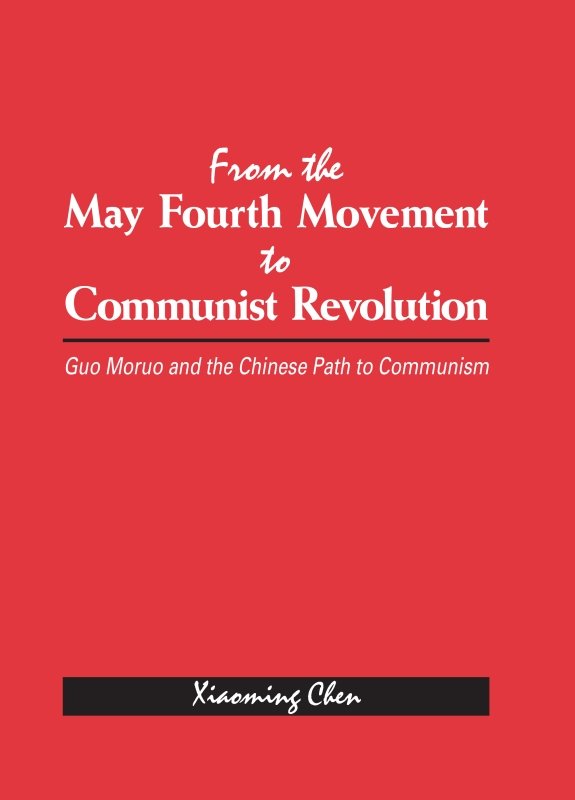
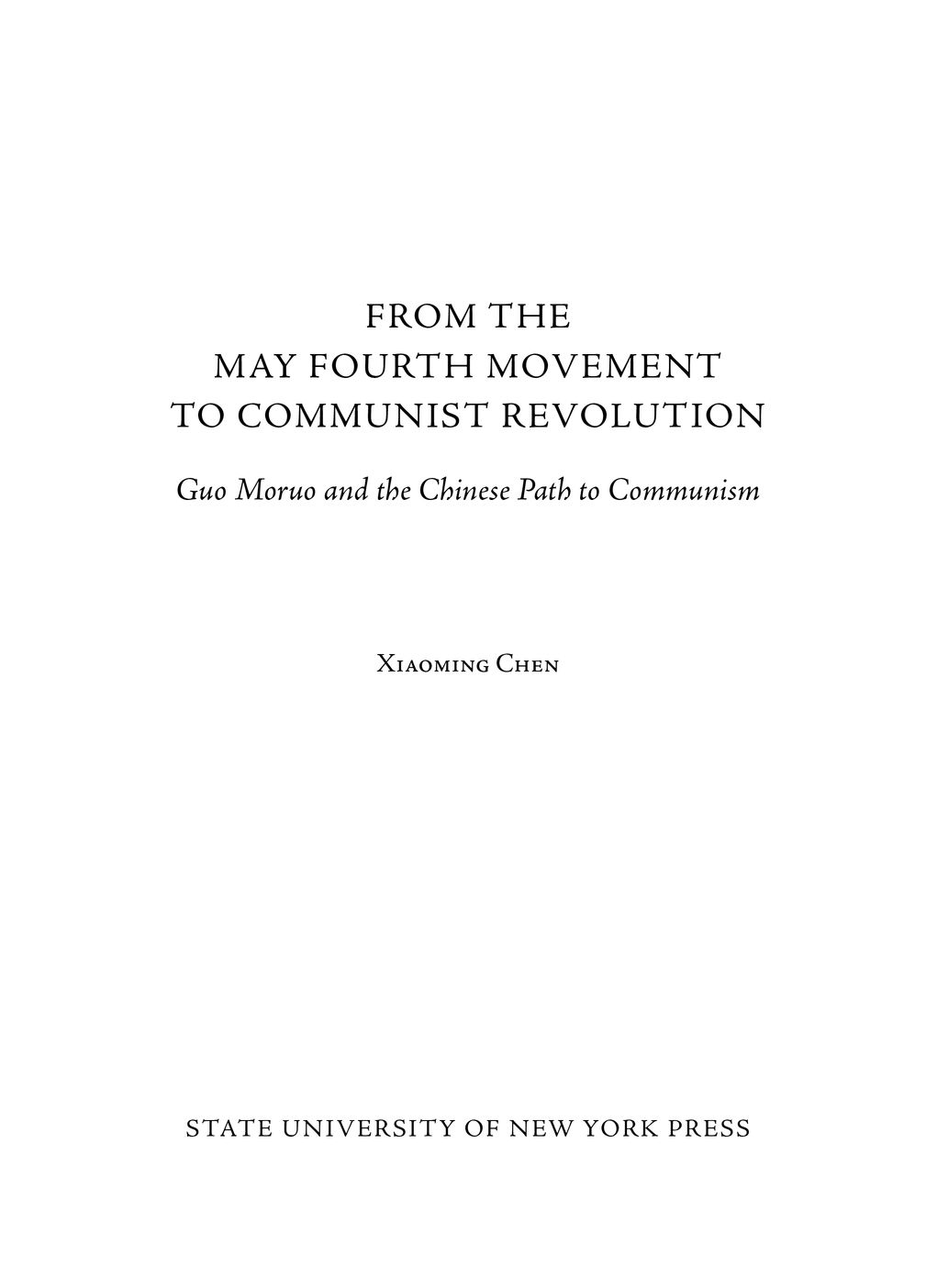
Table of Contents
Table of Figures
SUNY Series in Chinese Philosophy and Culture
Roger T. Ames, editor
To my son Michael
Acknowledgments
I would like to thank Chang Hao for the help and criticism he gave me in the process of writing this book. His criticism kept driving me to clarify my thinking and eventually forced me to come up with the scholarship that comprises this work. I am especially grateful for Ezra Vogels support of this work. I also am grateful to Kirk Denton and Yan-shuan Lao for the help and criticism they gave me in the initial stage of this manuscript. I also appreciate the help and support I received from Jeremy Baskes, Michael Flamm, and Rowena Hernandez-Muzquiz, my colleagues at Ohio Wesleyan. Thomas Wolber, another colleague of mine, deserves recognition for helping me with some of the translations from German. Finally, I would like to thank Dana Foote for her editing of this book.
The author thanks the Guo Moruo Museum in Beijing, China, for granting permission to reproduce the photos in this book.
Introduction
During the second half of the May Fourth period (19151925), China saw some of its best brains turn to the Communist cause. Why did these May Fourth intellectuals become interested in Communism? Why and how did China develop from the seemingly Western-style, bourgeois May Fourth movement, which featured, among other things, an urge for individual emancipation, to the collectivist and violent revolution of Communism? An examination of the case of Guo Moruo (

) (18921978), a leading May Fourth advocate for Western Romanticist individualism who converted to Communism in the mid-1920s, may help answer these questions.
First published as a poet in 1919, Guo came to have a significant impact on Chinas May Fourth reading public with his numerous poems, essays, novels, and translations of foreign works in fields such as literature, art, philosophy, and political theory. After leading the May Fourth movement in introducing and promoting Johann Wolfgang von Goethes (17491832) celebration of romantic love and individuality and challenging Chinas traditional system of arranged marriage, a symbol of the Confucian social ethics of
lijiao (

), Guo declared his conversion to Communism in 1924, three years after the founding of the Chinese Communist Party (CCP). He then further committed himself to the Communist revolution by participating in the Northern Expedition (19261928) in July 1926 and joining the CCP in August 1927.
Scholars basically agree that the frustration and desperation that some May Fourth intellectuals felt in trying to save China as a nation in the modern world was a major reason they turned to the radical cause of Communism in the 1920s. This study confirms this view, as it finds that a major reason Guo turned to Communism in the mid-1920s was that, inspired by the 1917 Soviet revolution, he came to see Communist revolution as a powerful means to strengthen his nation so it would not only survive suppression and exploitation by Western and Japanese imperialist powers but eventually defeat those powers.
There were, however, other reasons Guo (and, I would argue, other May Fourth intellectuals) turned to Communism, to which scholars have not yet paid enough attention.
In determining why and how Guo made the intellectual transition from May Fourth to Communism, I examine, in the context of the interaction and collision between Chinese tradition and Western modernity, his experience with and thinking on two basic issues of humanity: the relationships between the self/individual, the family, the nation, and the whole of mankind in the mundane world and the moral/spiritual transcendence of mundane human individuals (or the negation of such transcendence).
To begin with, on the issue of peoples mundane relationships, while modern Western influence had already started undermining Chinas traditional society at the turn of the twentieth century, Guo (as did most Chinese of his generation) at the time was to a substantial extent still brought up with the basic framework of the Confucian orientational order of
xiushen
(morally cultivating the self),
qijia
(regulating the family),
zhiguo
(managing the state), and
pingtianxia
(harmonizing the world). This sequence, to which I will refer as the Confucian model of
xiu-qi-zhi-ping, starts with an emphasis on the moral cultivation, development, and fulfillment of the individual, a concept that Wm. Theodore de Bary calls Confucian personalism. As de Bary puts it, this Confucian personalism differs from modern Western individualism in that it sees the individual as fulfilling himself through the social process and in a moral and spiritual communion with others and does not set the individual over against state or society. In other words, the Confucian concern for the individual selfs moral/spiritual growth carries a strong collective perspective, specified in the individuals obligations to the collectives of family, state, and world.
The family was the collective with which Confucian individuals should have the closest relationship, hence their first collective task of regulating the family. The importance of the family in Confucian society can also be seen in the fact that two of the Confucian Three Bonds, those between the father and son and between the husband and wife, center on the family. For centuries, the family functioned as the cornerstone of Chinas traditional Confucian lijiao society.
Beyond the family the Confucian sequence further demands the individuals obligation to the state and to the cosmopolitan world. The point to be made here is that the Confucian calling for the individual to strive to harmonize the world gives the Confucian goal of managing the state a constant cosmopolitanist perspective and therefore assigns to that goal a secondary importance (secondary to cosmopolitanist achievement). Partly because of this cosmopolitanist perspective, the Confucian goal of state management is substantially different than modern nationalism, which, as suggested by Benjamin Schwartz, exists when the commitment to the preservation and advancement of the societal entity known as the nation takes priority over commitment to all other values and beliefs. By the same token, we can say that the Confucian cosmopolitanist concern is also modified by the serious attention that Confucianism gives to state management, to the extent that such concern does not constitute a cosmopolitanism that thoroughly transcends and ignores national boundaries.
Next page

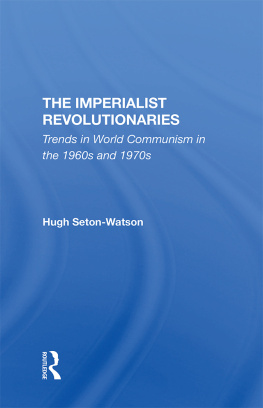
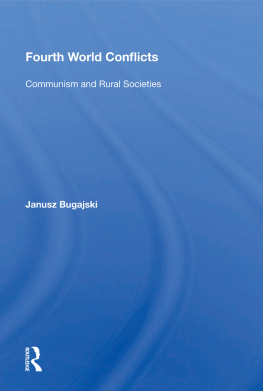
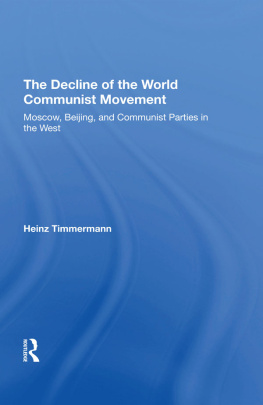
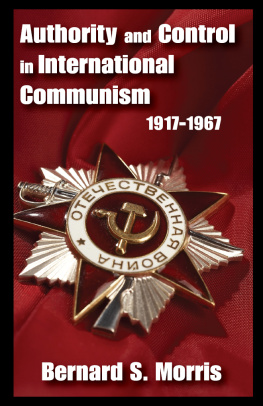

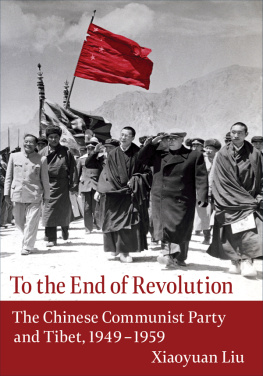
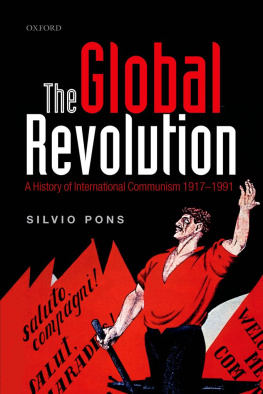




 ) (18921978), a leading May Fourth advocate for Western Romanticist individualism who converted to Communism in the mid-1920s, may help answer these questions.
) (18921978), a leading May Fourth advocate for Western Romanticist individualism who converted to Communism in the mid-1920s, may help answer these questions. ), Guo declared his conversion to Communism in 1924, three years after the founding of the Chinese Communist Party (CCP). He then further committed himself to the Communist revolution by participating in the Northern Expedition (19261928) in July 1926 and joining the CCP in August 1927.
), Guo declared his conversion to Communism in 1924, three years after the founding of the Chinese Communist Party (CCP). He then further committed himself to the Communist revolution by participating in the Northern Expedition (19261928) in July 1926 and joining the CCP in August 1927. (morally cultivating the self), qijia
(morally cultivating the self), qijia (regulating the family), zhiguo
(regulating the family), zhiguo (managing the state), and pingtianxia
(managing the state), and pingtianxia (harmonizing the world). This sequence, to which I will refer as the Confucian model of xiu-qi-zhi-ping, starts with an emphasis on the moral cultivation, development, and fulfillment of the individual, a concept that Wm. Theodore de Bary calls Confucian personalism. As de Bary puts it, this Confucian personalism differs from modern Western individualism in that it sees the individual as fulfilling himself through the social process and in a moral and spiritual communion with others and does not set the individual over against state or society. In other words, the Confucian concern for the individual selfs moral/spiritual growth carries a strong collective perspective, specified in the individuals obligations to the collectives of family, state, and world.
(harmonizing the world). This sequence, to which I will refer as the Confucian model of xiu-qi-zhi-ping, starts with an emphasis on the moral cultivation, development, and fulfillment of the individual, a concept that Wm. Theodore de Bary calls Confucian personalism. As de Bary puts it, this Confucian personalism differs from modern Western individualism in that it sees the individual as fulfilling himself through the social process and in a moral and spiritual communion with others and does not set the individual over against state or society. In other words, the Confucian concern for the individual selfs moral/spiritual growth carries a strong collective perspective, specified in the individuals obligations to the collectives of family, state, and world.